Aug. 7th, 2004: Corrales vs Freitas
I have never agreed with those fight “fans” who judge boxers harshly for quitting. Any man or woman who enters the ring possesses courage that distinguishes them from us non-pugilists. To summon the nerve to expose one’s self in a physical struggle against another human being requires extraordinary bravery. It’s easy to ridicule a fighter for folding under pressure, giving up in the face of adversity. But the truth is, the cowards who criticize would never be able to even make that long walk to the ring.
But quitting in boxing is traditionally viewed as a cardinal sin; doing so sullies a fighter’s reputation forever. This is unfair because one instance of surrender should not wipe out all other career accomplishments. You can’t tell me Roberto Duran wasn’t an all-time great because he threw in the towel against Sugar Ray Leonard. Wins over Leonard, Palomino, Cuevas, Moore, and Barkley outweigh that one resignation.
The same can be said for Acelino “Popo” Freitas. His moment of acquiescence occurred on August 7, 2004 during his lightweight title defense against Diego “Chico” Corrales. Those two fighters, along with Joel Casamayor, formed a memorable fistic triangle through which they are inextricably linked. This great trio produced several memorable battles during the 1990’s, in the process bringing the best out of each other.
By the time Freitas and Corrales clashed, each had already tussled with the crafty Casamayor. In a rare match between two undefeated champions, Freitas took a close decision over the Cuban gold medalist in January of 2002 to unify the junior lightweight titles and give “El Cepillo” his first loss as a pro. Casamayor and Corrales then split two meetings, with the Cuban winning their first battle by a sixth round TKO before Corrales avenged that defeat with a split decision victory, in the process winning the vacant WBO super featherweight title as well as a chance to take on Freitas for the lightweight crown.
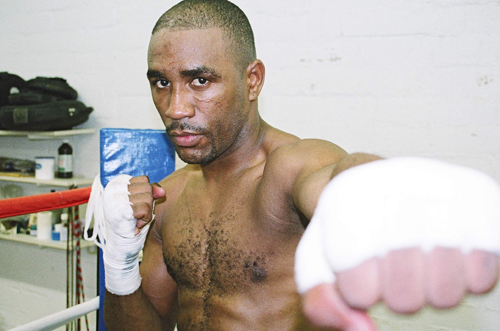
With 62 combined knockouts between the two fighters, the potential was high for Corrales vs Freitas to feature plenty of explosive exchanges. However, in the opening round, it was the champion doing all the damage. As noted in Al Bernstein’s “keys to victory” before the match, Freitas needed to utilize lateral movement to keep Corrales guessing so he could land his powerful right. He executed that game plan perfectly in the opening stanza, as he moved and landed a number of hard rights, both as a lead and following the jab.
Freitas’ success continued in round two, when he consistently landed hooks with both hands. Despite being the shorter man, Freitas was more effective as he bounced around on the outside and intermittently jumped in with quick power shots. The decisive factor after two rounds was the clear speed advantage, both of foot and hand, which belonged to the Bahia native. Freitas also showed underrated defensive reflexes as he deftly avoided many of Corrales’ shots with upper body and head movement. Corrales continued to stalk but was unable to corner his quarry.
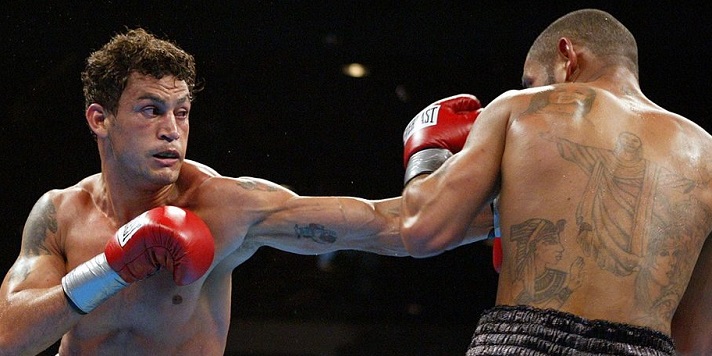
The large contingent of Brazilian fans made themselves heard to start the third round as they supported their man with loud chants and the bellowing of trumpets. However, there was a noticeable change in approach, as Freitas moved more and hit less, expending energy by bounding laterally, but landing power shots at a lower frequency. With just under a minute to go in the round, Freitas did land a hard overhand right that momentarily stunned Corrales.
The momentum shifted slightly to Corrales in the fourth. Although Freitas once again landed the sharper punches, Diego applied tremendous pressure. Constantly moving to avoid the hunting Corrales was beginning to take a physical and psychological toll on the Brazilian. Freitas was dragged into close quarter exchanges, and though he was landing, so was Corrales. “Chico” landed some good short hooks to the head and body to close the round, one in which Freitas showed signs of fatigue.
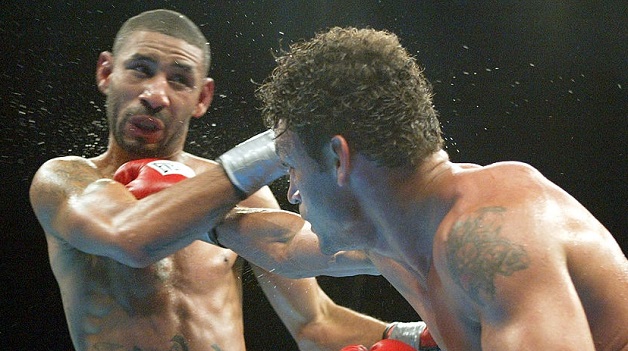
Freitas recovered by boxing well in the fifth, as he landed more rights and mixed in effective body shots. However, a telling statement came from Bernstein early in this round: “This is a very frenetic but effective performance by Acelino Freitas, but it does lead one to say that, will this adrenaline wear off? Will he slow down, and will he be a target for Corrales?” Freitas was clearly winning the early battles, but the war was yet to be decided.
Freitas’ second wind allowed him to keep boxing in rounds six and seven, where he continued to outwork Corrales. At the end of round seven, Freitas landed a left-right-left combination that snapped Corrales’ head back. Freitas then jumped in and landed two more hard hooks, which ignited Corrales’ warrior spirit. Never to be outfought, Corrales exchanged with Freitas and landed a sharp left hook of his own. The round ended with the pro-Brazilian crowd loudly approving their man’s late flurries but Corrales’ chin was proving otherworldly. His granite chin kept him marching forward as he absorbed blows which would have felled most mortal 130 pounders.
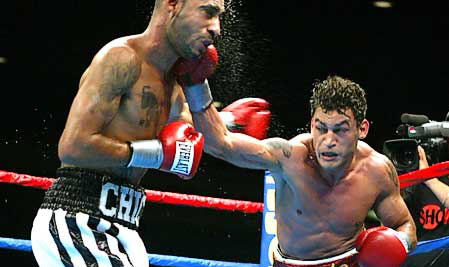
Early in round eight, the first loud chants of “Chico” could be heard and Corrales responded with his best round thus far. Halfway through, he countered Freitas with a stinging left hook upstairs and 30 seconds later he pinned Freitas to the ropes and unloaded a flurry of punches punctuated by a missile-like right that sent Freitas to the canvas. The champion rose at the count of six and then benefited from the time it took to retrieve his fallen mouthpiece, extra seconds which proved precious for “Popo.” Freitas spent the last thirty seconds of the round on his bicycle, intelligently avoiding any exchanges but Corrales had sent an emphatic message: “I’m in charge now.” Moving to the championship rounds, it was Corrales who had his foot on the gas pedal and Freitas who had his on the brakes.
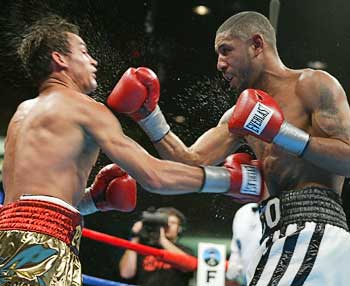
Corrales’ takeover continued in round nine, as he landed a powerful right hook that sent the champion to the canvas a second time. Freitas rose but was penalized a point for having spit out his mouthpiece. Corrales was again dealt an unfortunate hand because Freitas then got more time to recover during the penalty announcement and mouthpiece recovery. Nonetheless, it was a 10-7 round for Chico, and more importantly than the scoring was the fact that Corrales had taken firm control of the fight with three rounds remaining.
With under two minutes to go in the tenth, Corrales landed another hard left hook-right hand combination that wobbled Freitas. Corrales pursued and landed a right behind the ear that sent Freitas down a third time. The champion beat the count and walked toward the referee on steady legs to show he was ready to continue. But shockingly, as he walked to the ref, he abruptly changed direction, walking to his corner and waving his hand to signal surrender. Corrales vs Freitas was suddenly over.

Despite being knocked down three times, Freitas never appeared seriously hurt. At no point did he stagger about the ring, his legs in a jelly-like state. Instead he made a conscious decision: he could no longer cope with Corrales’ intense pressure. Thus the contrast between the two fighters could not have been more stark. The challenger arguably lost the first seven rounds of the fight, yet he never wavered in his determination. He was convinced that one of his bombs could change the course of the contest and all he needed to do was land that one shot. It was that sheer desire to win that pushed Corrales to victory, and that eroded the confidence and will to win of Freitas. Boxing is often a battle of wills as much as skills, and on this night it was Corrales’ dogged determination that decided the outcome.
Despite Freitas bending and breaking under heavy pressure, his career should not be defined by this defeat. He was a two-division world champion, with eleven successful defenses of the WBO junior lightweight title. Although a victory over Corrales would have enhanced his legacy, his performance during that fight deserves respect. He showed his speed and power throughout, as well as the grit to get up and continue fighting after being knocked down. Yes, he surrendered, but he has nothing to be ashamed of. He fought and took punishment and kept rising from the canvas and battling back. He demonstrated great heart and courage, even in defeat, and that’s more than most of us can say! — Jamie Rebner

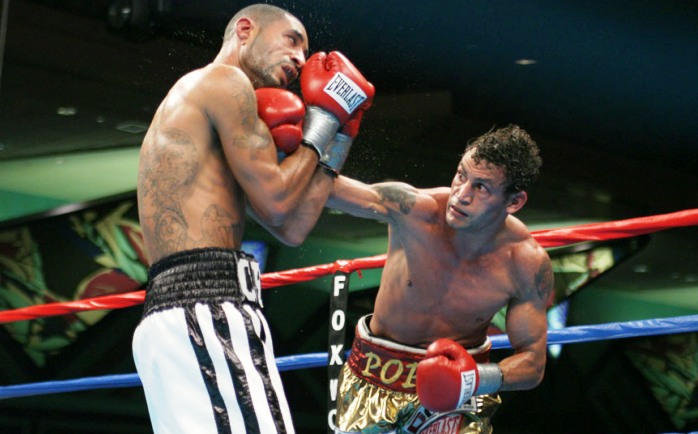
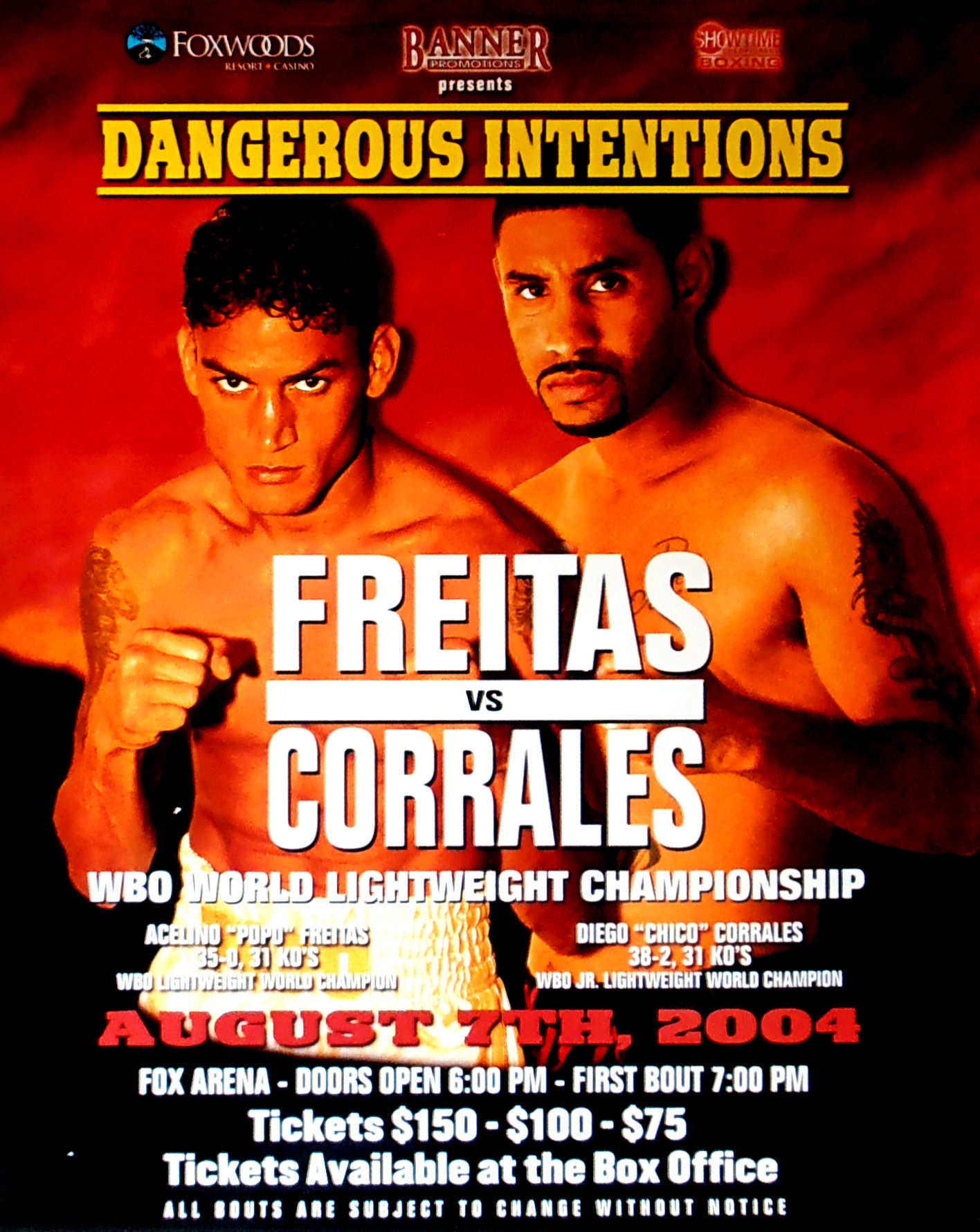

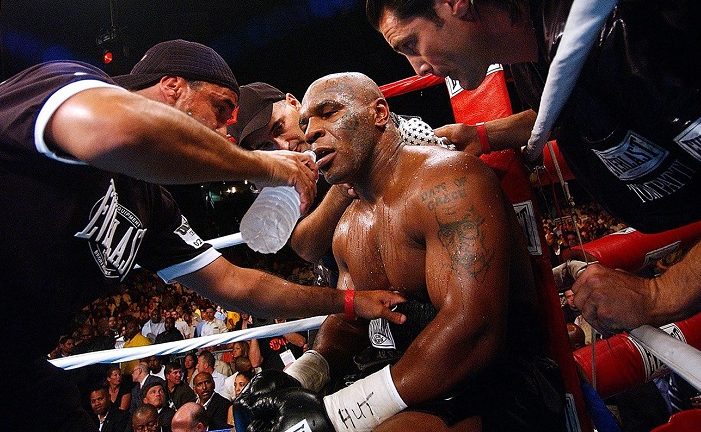
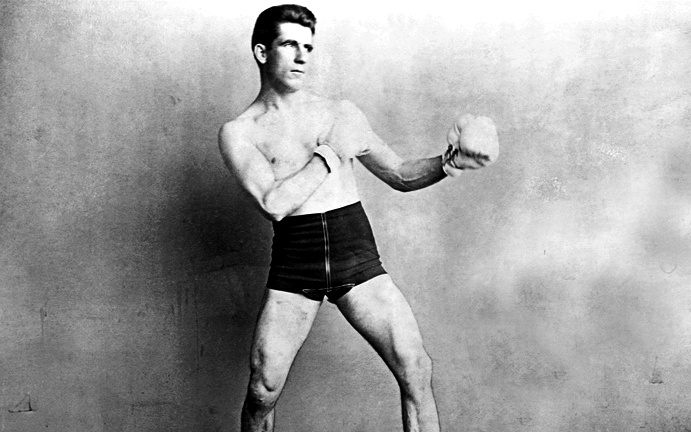
Terrific article, Jamie. I too am sick to death of armchair critics slamming fighters and trashing their achievements whenever they so much as back off from an exchange. Sometimes a fighter simply knows when they are beat and accepts defeat. Does that make them pathetic figures unworthy of respect? Not at all. Boxing fans are incredibly fickle nowadays. Not surprising when you get disrespectful hacks like Dan Rafael over at ESPN verbally trouncing pugilists on a daily basis when he has never so much as had a sparring session. He knows nothing of the sacrifice boxers make, yet feels compelled to deride fighters for not boxing in a manner he deems worthy, or swerving certain fights for business reasons.